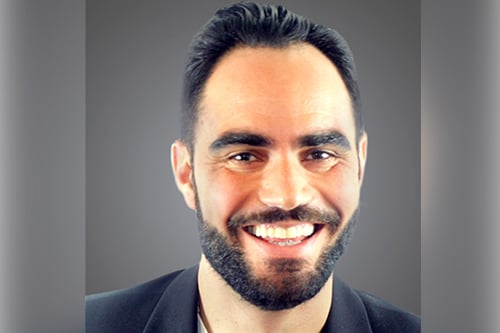

Workplace burnout costs employers anywhere between $125 billion and $190 billion per year in additional healthcare spending, according to the Stanford Graduate School of Business. That’s a lot of extra cash to cover stress-related illnesses that can be controlled with some effective workplace mental health strategies.
A recent poll by telehealth provider MeMD, found that 23% of employees reported feeling burned out at work often, resulting in issues like absenteeism, low morale, diminished commitment and job satisfaction, and frequent job-hopping. With the insurance industry around the world facing what some describe as a talent crisis, insurance companies simply cannot afford to lose talent to burnout.
“Just like thoughts, you’re never going to get rid of stress,” said Jonathan La Greca (pictured above), founder and mindfulness facilitator at GentleMind. Speaking at Insurance Business’s Women in Insurance Toronto event, he commented: “Life’s only going to get faster and more intense. The reality is, the day we’re living today is probably the slowest day we’re going to live in the rest of our lives. So, as things continue to accelerate, stress is always going to be there. While you cannot remove stress, what you can do is start to change your relationship with it and try to understand it in terms of how it’s making you behave and how it’s affecting your workplace relationships.”
La Greca’s point about the pace of change rings true in the insurance industry. The market is evolving daily with the rise of insurtech, the prevalence of consolidation, and emergence of quite alien exposures. Such a backdrop has caused many insurance professionals in Canada to question their futures and potentially stress about the relevance of their position as technology continues to gain footholds.
“When it comes down to it, we all have self-doubts,” La Greca added. “It’s important to recognize that having self-doubt doesn’t mean something’s wrong with you or you’re not a confident person. In fact, I think the key to being more confident and building self esteem is to build a foundation of understanding the self-doubts that you have. It’s about becoming more aware of those thoughts and how they make you feel and behave. The more aware you become of that, the more successful I think you can be. There’s definitely a value of practicing mindfulness in terms of improving your emotional intelligence at work.”
Workplace stress is a natural consequence of self-doubt and uncertainty. Fellow Women in Insurance speaker, Fotini Iconomopoulos (pictured below), communication and negotiation consulting at Forward Focusing, said the main thing people need to do – whether they’re women in insurance or any other employee feeling stressed or uncertain at work – is to “figure out how you want to show up.”

“I think the big thing is … being able to quiet your mind and figure out exactly what image you want to portray,” she told Insurance Business. “How do you want people to see you? That’s going to dictate where you sit in the room, how your voice sounds, how self-assured you are, and how self-assured you appear to others. When it comes to quietening self-doubt, there are always a couple of things I recommend people do.
“One is to always have a positive mantra. That might be a positive affirmation sent to you by letter or email, or it might be a picture of you at a really great time in your life. That’s something that works really well. The other important thing is to find an ally. If you’re going into a meeting, you want to make sure there are people there who are going to support you, positively affirm your points, and make sure you’re not interrupted. If you can find those supporters and champions, that’s a great way to keep yourself consciously lifted at all times.”
